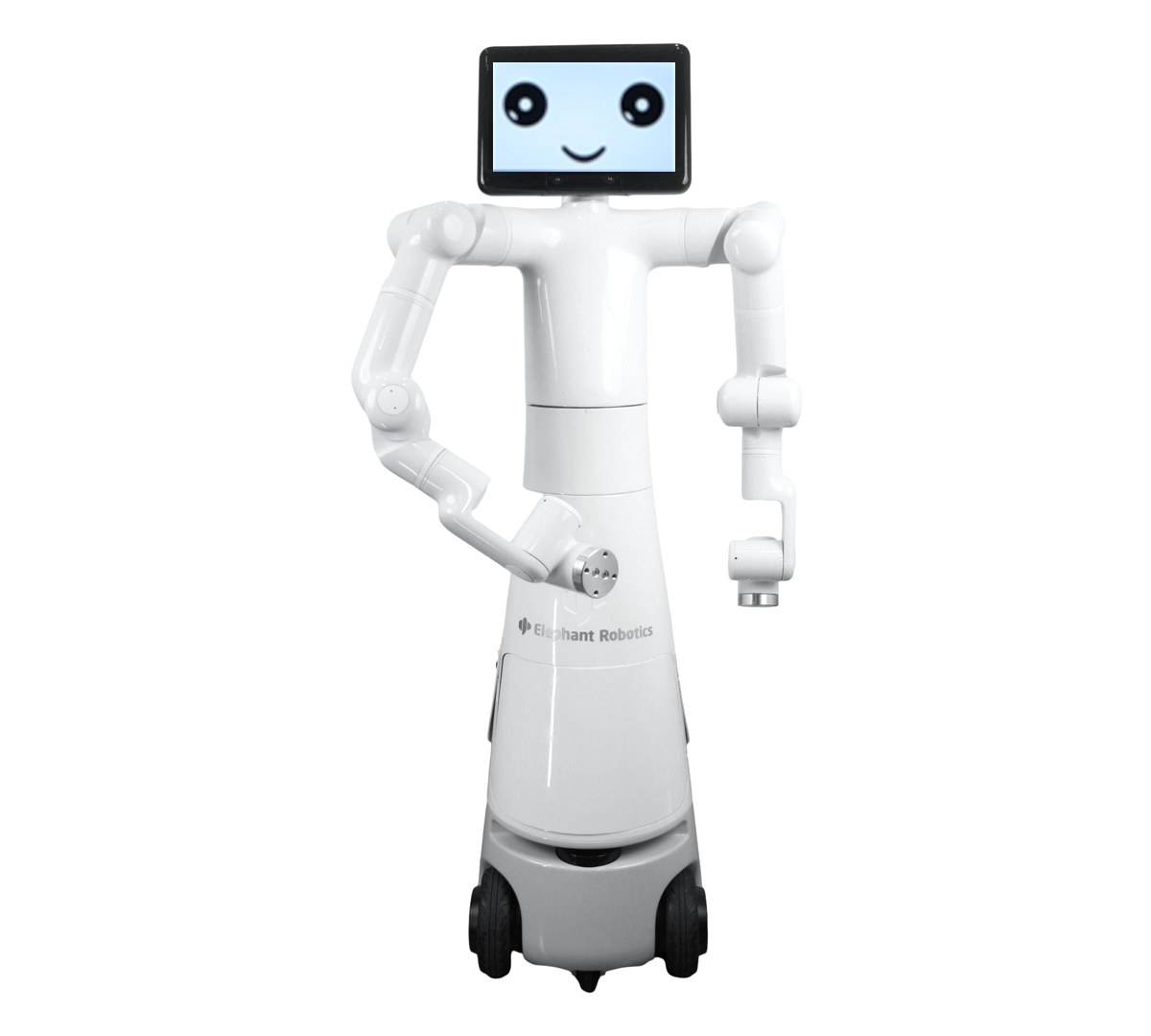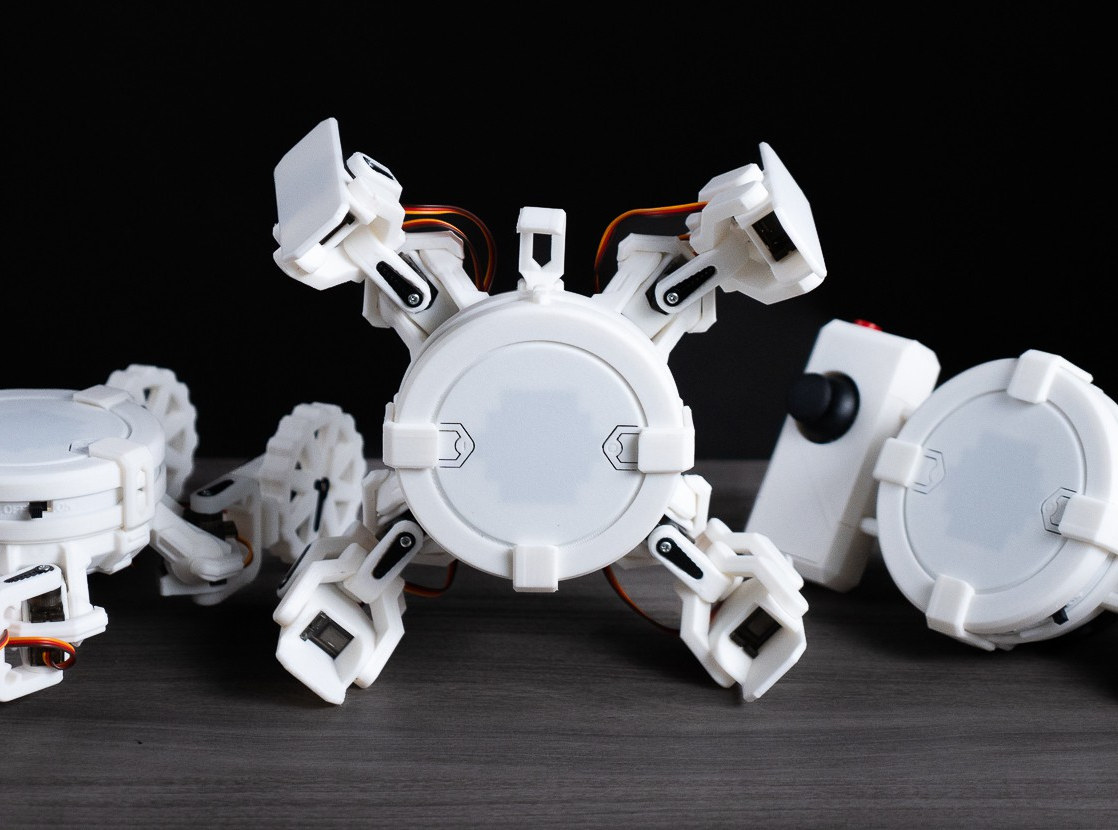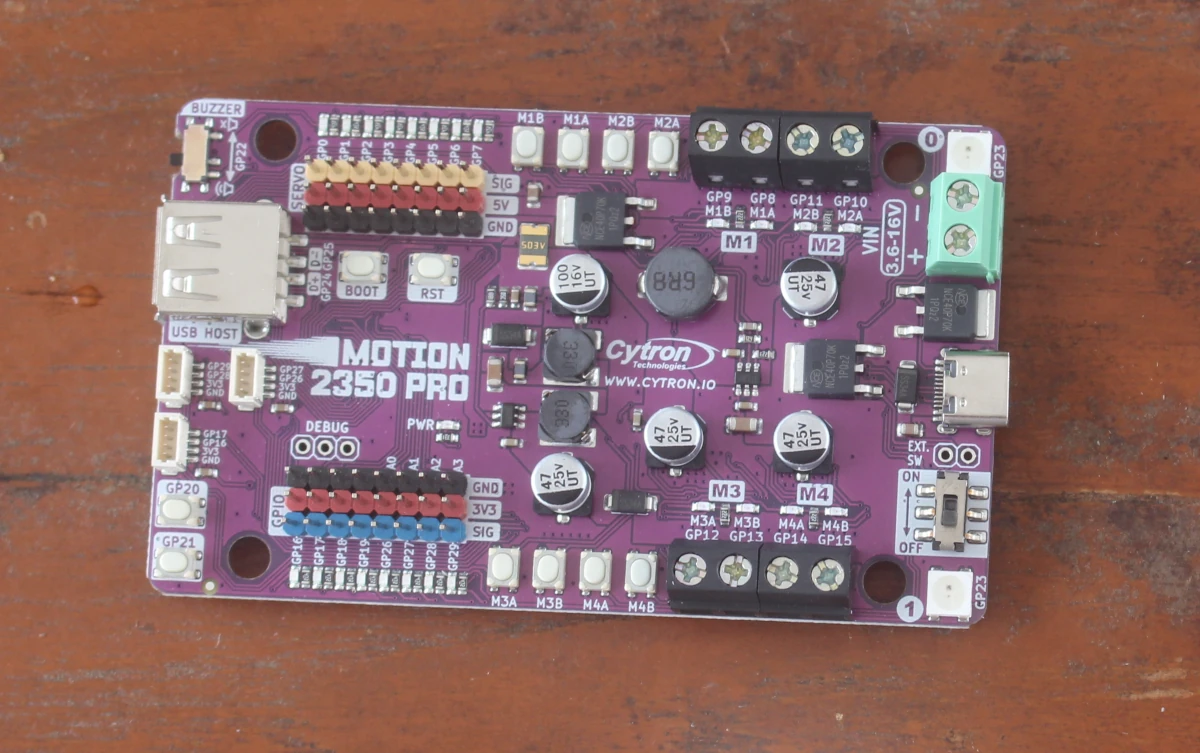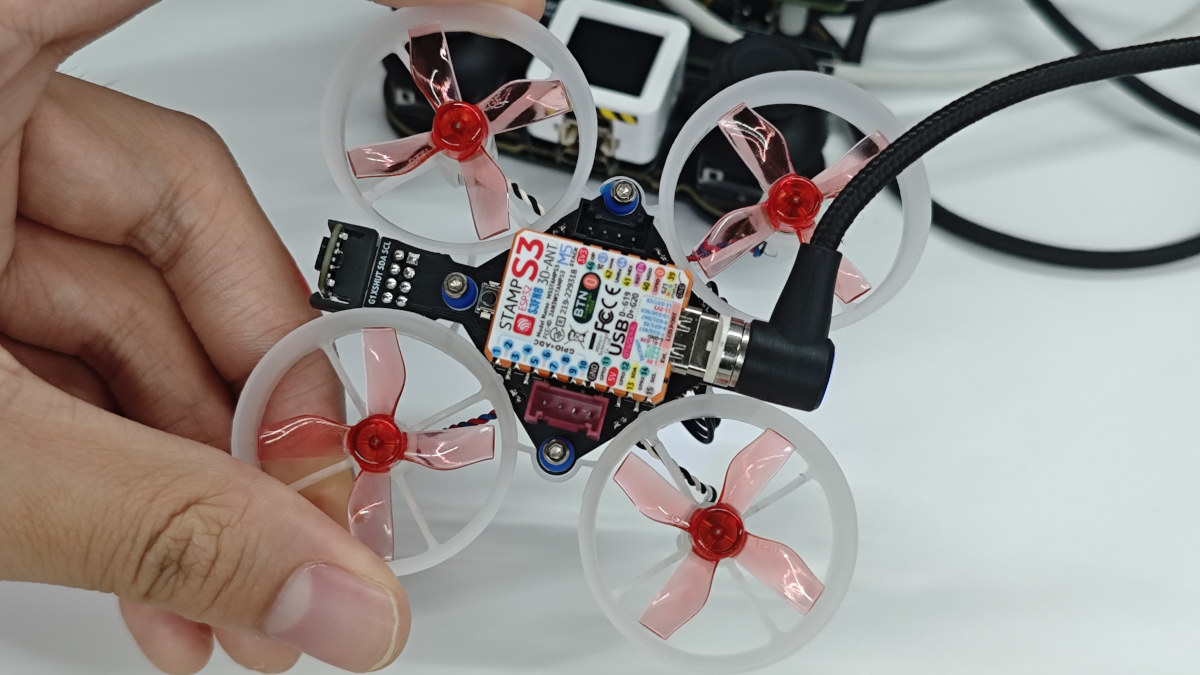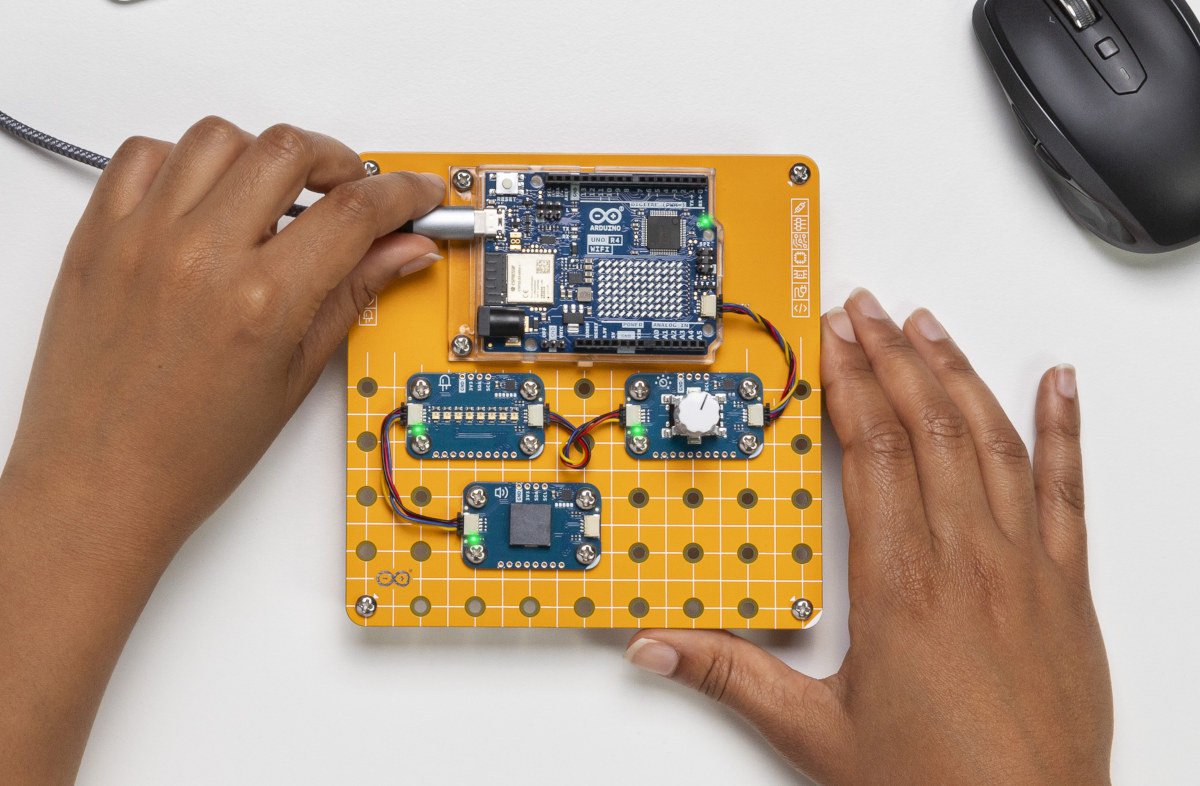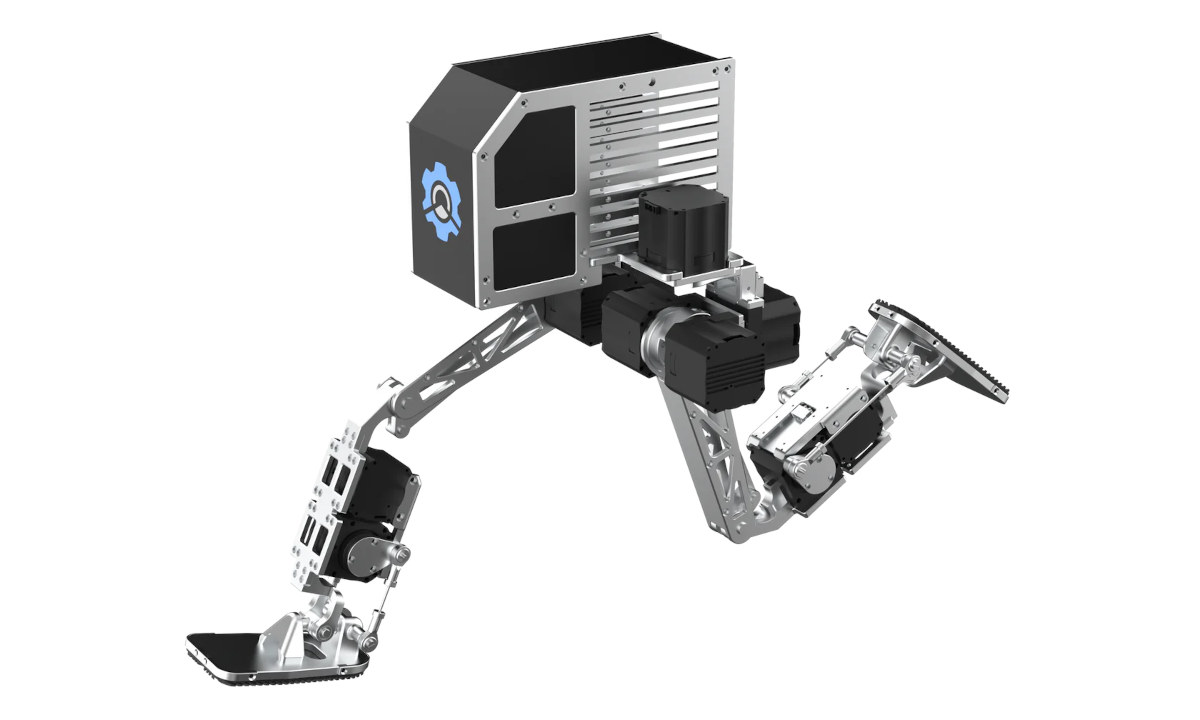The T-Bao AI robot is a compact embedded device/robot that combines an ESP32 and a K210 RISC-V microcontroller and can perform face recognition and robotics applications. This compact device features a 1.54-inch 240×240 capacitive touch screen, a 2MP OV2640 camera, a MAX98357A I2S audio amplifier, a DRV8833 motor driver, an MPU6050 6-axis motion sensor, and an AXP202 PMU for power management. Additionally, it supports USB charging, offers LEGO blocks compatibility, and can move around with integrated caster wheels. These features make it usable for educational projects, robotics, IoT applications, and embedded systems prototyping. LILYGO T-Bao specifications SoCs Kendryte K210 dual-core 64-bit RISC-V processor @ 400 MHz with 8MB on-chip RAM, various low-power AI accelerators delivering up to 0.5 TOPS ESP32-D0WDQ6-V3 dual-core Xtensa LX6 processor, 240 MHz, 16MB Flash, 8MB PSRAM Display – 1.54-inch capacitive touch LCD (240×240) Camera – 2MP OV2640 with rolling shutter, UXGA (1600 x 1200) resolution, 180-degree […]
Mercury X1 wheeled humanoid robot combines NVIDIA Jetson Xavier NX AI controller and ESP32 motor control boards
Elephant Robotics Mercury X1 is a 1.2-meter high wheeled humanoid robot with two robotic arms using an NVIDIA Jetson Xavier NX as its main controller and ESP32 microcontrollers for motor control and suitable for research, education, service, entertainment, and remote operation. The robot offers 19 degrees of freedom, can lift payloads of up to 1kg, work up to 8 hours on a charge, and travel at up to 1.2m/s or about 4.3km/h. It’s based on the company’s Mercury B1 dual-arm robot and a high-performance mobile base. Mercury X1 specifications: Main controller – NVIDIA Jetson Xavier NX CPU – 6-core NVIDIA Carmel ARM v8.2 64-bit CPU with 6MB L2 + 4MB L3 caches GPU – 384-core NVIDIA Volta GPU with 48 Tensor Cores AI accelerators – 2x NVDLA deep learning accelerators delivering up to 21 TOPS at 15 Watts System Memory – 8 GB 128-bit LPDDR4x @ 51.2GB/s Storage – 16 […]
CYOBot v2 ESP32-S3-based open-source modular robotics platform supports up to 16 servos (Crowdfunding)
Create Your Own Bot (CYOBot) v2 is an open-source, modular robotics platform for students, educators, hobbyists, and future engineers based on the ESP32-S3 microcontroller and featuring up to 16 servo motors for complex control. The CYOBot v2 is a follow-up to the previous quadrupedal robotic platform from the same company. It adds new features such as a modular design, an upgrade to the ESP32-S3 chip, more motor channels, and an expansion block with more peripherals. It also supports integrating AI systems, such as ChatGPT, for added functionality. The CYOBot supports up to three configurations via the CYOBrain — which powers the robotics platform and controls the servo motors — and separate 3D-printed components. The CYOBot Crawler is a four-legged robot powered by eight 180-degree servo motors. The CYOBot Wheeler form factor features four 360-degree motors linked to wheels at the end of each leg and is essentially a hybrid between […]
Cytron MOTION 2350 Pro – A Raspberry Pi RP2350 board for robotics and motor control
As mentioned in the Raspberry Pi Pico 2 article, third-party RP2350 boards are already available, and one of them is the MOTION 2350 Pro board from Cytron designed for robotics and motor control. The board features a DC motor driver capable of controlling up to 4 brushed DC motors with voltage ratings from 3.6V to 16V. It also features eight 5V servo ports, eight GPIO ports, and three Maker ports for sensor or actuator modules. Each I/O is matched with its own LED which makes the board ideal for the education market and also simplifies debugging. Finally, a USB 1.1 host port is present to connect peripherals such as the RF dongle for a joystick or a keyboard. Cytron MOTION 2350 Pro specifications: Microcontroller – Raspberry Pi RP2350 CPU – Dual-core Arm Cortex-M33 processor @ 150MHz (RISC-V cores are not mentioned, so they are likely not used at all) Memory […]
M5Stamp Fly ESP32-S3 WiFi drone is controlled by the M5Atom WiFi joystick controller using ESPNOW
M5Stack M5Stamp Fly is a tiny ESP32-S3 WiFi drone based on the company’s M5Stamp S3 WiFi 4 and BLE IoT module, equipped with four motors and several sensors. and controllable the M5Atom WiFi joystick controller also based on ESP32-S3 WiSoC. We have recently seen some tiny ESP32 or ESP8266 WiFi drones with a low-cost ESP32 DIY drone and the PiWings 2.0 drone, but the M5Stamp Fly is more advanced with a total of six sensors including a barometer, two time-of-flight distance sensors, a 6-axis IMU, a 3-axis magnetometer, and an optical flow detection sensors, plus two Grove connector for additional sensors or modules. M5Stamp Fly (K138) specifications: Main controller – M5Stamp S3 module WiSoC – Espressif Systems ESP32-S3FN8 dual-core 32-bit Xtensa LX7 microcontroller with AI vector instructions up to 240MHz, RISC-V ULP co-processor, 512KB SRAM, 2.4GHz WiFi 4 (802.11b/g/n), Bluetooth 5.0 BLE + Mesh, 8MB flash Connectivity 2.4 GHz WiFi […]
Adeept Robot HAT for Raspberry Pi is designed for DIY projects and educational needs
The Adeept Robot HAT V3.0 is a motor and sensor driver HAT that supports Raspberry Pi 5, Pi 4, and Pi 3 models. The board features a bunch of headers that give access to sensor and motor controllers including sixteen servo motor ports, a three-channel line tracking sensor, an ultrasonic sensor, IR receivers, WS2812 RGB LEDs, and more. Additionally, the board features an integrated 8.4V battery charger with a Type-C port for charging. All these features make it easy to build DIY robotics and smart car projects with this HAT. Previously we have written about similar educational robot kits including the Arduino Alvik educational robot, the XGO-Rider self-balancing robot, the Waveshare UGV Rover, SunFounder GalaxyRVR, and much more. Feel free to check that out if you are interested in those topics. Adeept Robot HAT V3.0 specifications HAT Name – Adeept Robot HAT V3.0 Host controller (one or the other) Raspberry Pi […]
Beginner friendly Arduino Plug and Make Kit features Arduino UNO R4 WiFi and Modulino I2C modules
Arduino has just launched a “Plug and Make” kit designed for beginners with an Arduino UNO R4 WiFi board, several “Modulino” modules, a “Modulino” base to neatly attach the UNO R4 and modules, and various cables, spacers, screws, and nuts. When thinking about Arduino projects, breadboards or even soldering may come to mind, but the new Arduino Plug and Make Kit does not require any of those. No breadboard, jumper wires, or soldering needed. Users can simply connect the modules to the Arduino board through Qwiic cables, neatly attach everything together on the provided base, and follow one of the seven projects complete with step-by-step instructions provided with the kit. The Arduino Plug and Make Kit content Arduino UNO R4 WiFi board 7x Modulino I2C nodes Modulino Knob* – Encoder for value adjustments Modulino Pixels* – 8x LC8822-2020 RGB LEDs Modulino Distance – STMicro VL53L4 Time-of-Flight (ToF) proximity sensor to […]
High Torque Robotics Mini π is a bipedal robot powered by an Orange Pi 5 SBC
High Torque Robotics’ Mini π is a 54cm high bipedal robot that can walk and dance with two legs and leverages the Orange Pi 5 SBC’s features such as the 6 TOPS AI accelerator in the Rockchip RK3588S processor. The robot offers 12 degrees of freedom (DOF) and can run, jump, and even flip thanks to its twelve join motors that were developed by the company. The Mini π is designed for locomotion algorithm research and education and supports ZMP (zero moment point), MPC (Model Predictive Control), reinforcement learning locomotion control algorithms, and ROS SLAM navigation features. Mini π bipedal robot highlights: SBC – Orange Pi 5 RK3588S single board computer Controller – Custom-design “high-performance underlying controller” using 4x CAN FD communication DOF – 6 DoF per leg, or 12 in total Joint motors 8x HTDM-5047-36-NE with gear ratio: 36, 16Nm peak torque 4x HTDM-4438-32-NW with gear ratio: 32, […]



